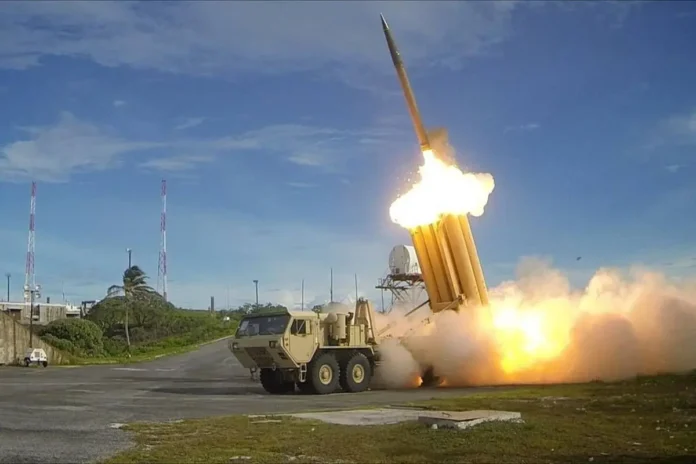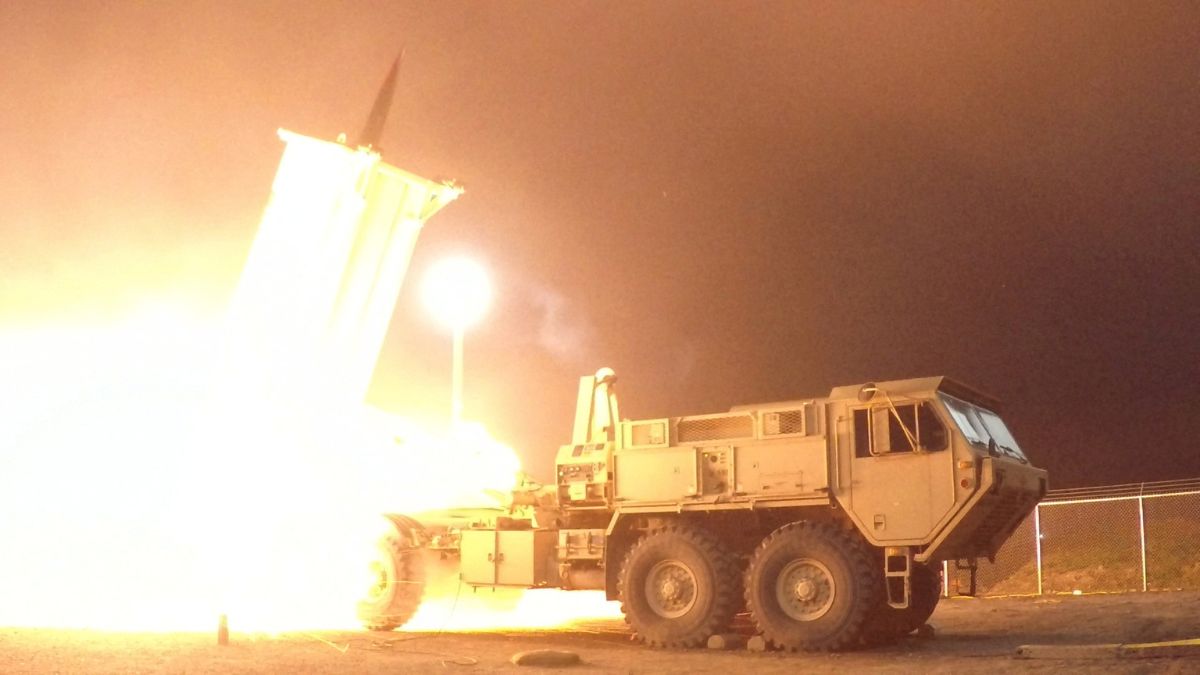The THAAD system, a high-precision missile defense system developed by the United States, saw its operational debut in Israel, marking a significant moment in global defense technology. Israel deployed the THAAD System to intercept a ballistic missile launched by Houthi rebels from Yemen. This development highlights the increasing reliance on advanced defense mechanisms to counter escalating threats in the Middle East.
What Makes The THAAD System Unique?
The THAAD System, or Terminal High Altitude Area Defense, is engineered to neutralize incoming ballistic missiles both inside and outside the Earth’s atmosphere. Unlike conventional missile defense systems, THAAD’s advanced radar detects threats early, giving it a superior edge in interception. This system plays a pivotal role in protecting nations from short to intermediate-range missile threats. Its mobility allows it to be deployed across various terrains, making it indispensable in volatile regions like the Middle East.
Why Israel Used The THAAD System?
The deployment of the THAAD System by Israel to intercept a missile marks a historic first for the country. As a nation often under missile threats from adversaries, including Iran-backed Houthi rebels, Israel has consistently upgraded its defense arsenal. The missile intercepted by THAAD was reportedly aimed at critical Israeli infrastructure, demonstrating the pressing need for a high-altitude defense solution.
This successful interception underlines the system’s efficiency and Israel’s readiness to counter any potential aggression swiftly and effectively.
Houthi Rebels And Missile Escalation
The Houthi rebels, an Iran-backed militia operating in Yemen, have grown increasingly bold in their regional activities. Known for their advanced missile technology, the Houthis have targeted neighboring nations such as Saudi Arabia and the UAE, with Israel becoming a new focus. The recent missile launch from Yemen signals an alarming escalation and a potential broadening of the Houthi threat.
For Israel, countering such attacks not only protects its sovereignty but also sends a clear message of deterrence to adversaries across the region.
Strategic Role Of The THAAD System
The THAAD System stands out for its unique ability to intercept missiles at extremely high altitudes. Its advanced radar technology tracks incoming threats with pinpoint accuracy, providing critical seconds for interception. This capability is particularly crucial for countering ballistic missiles that target strategic assets or densely populated areas.
Deployed alongside Israel’s existing multi-layered defense systems like Iron Dome and David’s Sling, THAAD adds another crucial layer of protection. The integration of these systems reflects Israel’s comprehensive approach to national security.
US-Israel Collaboration On Defense
The deployment of the THAAD System in Israel underscores the deep defense partnership between the United States and Israel. For decades, the US has provided Israel with cutting-edge technology to bolster its security in the Middle East. The collaboration extends beyond equipment, encompassing training, intelligence sharing, and strategic planning.
THAAD, already deployed in regions like South Korea and the Gulf, is a testament to the US’s commitment to ensuring the safety of its allies. In Israel, it complements other defense systems, creating an impenetrable shield against a wide range of missile threats.
Regional Implications Of THAAD Deployment
The successful use of the THAAD System in Israel has significant implications for the Middle East. First, it highlights the growing sophistication of missile threats in the region, necessitating advanced countermeasures. Second, it showcases the importance of international partnerships in addressing shared security challenges.
For countries in the Middle East, this event serves as a wake-up call to invest in modern defense technologies. As regional tensions persist, nations without advanced missile defense capabilities risk leaving themselves vulnerable to attacks.
The Global Impact Of THAAD Technology
The success of the THAAD System in Israel is likely to spark increased global interest in similar technologies. With missile threats becoming a pressing concern worldwide, nations are exploring advanced systems to bolster their defenses. The ability of THAAD to intercept missiles at high altitudes makes it an attractive option for countries facing long-range missile threats.
As THAAD gains prominence, it is poised to become a cornerstone of global missile defense strategies, shaping how nations address evolving security challenges.
Lessons For Future Defense Strategies
The operational debut of the THAAD System in Israel offers critical insights for countries around the world. It underscores the importance of readiness and the value of layered defense systems in countering complex threats. Additionally, it highlights the need for partnerships that provide access to cutting-edge technology and expertise.
For Israel, the successful interception reinforces the effectiveness of its multi-tiered defense approach. For other nations, it serves as a reminder of the importance of adopting advanced solutions to safeguard national interests.
The use of the THAAD System by Israel represents a significant milestone in modern defense. It not only demonstrates the system’s capabilities but also underscores the growing importance of international collaboration in addressing shared security challenges. As missile threats continue to evolve, technologies like THAAD will play an increasingly vital role in shaping the future of global defense.



)
